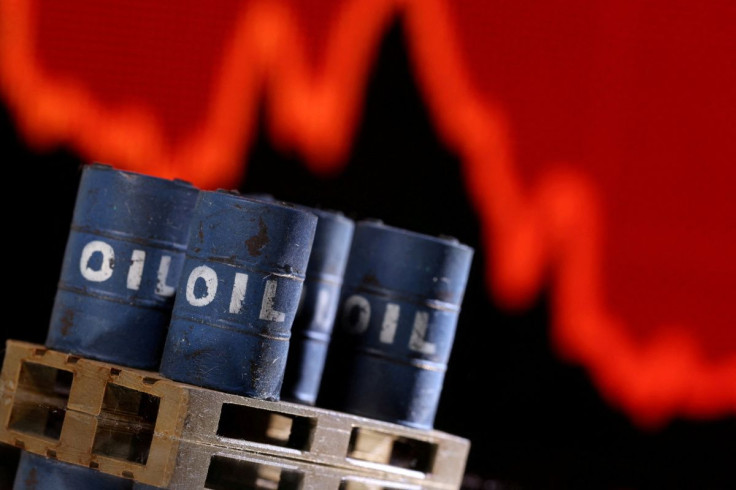Wall Street Powers Stocks Higher, Oil Lower As World Leaders Press Russia

U.S. stocks rose following choppy trading abroad on Thursday, and oil prices pulled back, as investors watched Western leaders present a unified front against Russia's invasion of Ukraine.
Technology companies lifted U.S. stock indexes after a sharp fall in the previous session, with the tech-heavy Nasdaq Composite up 269.24 points, or nearly 2%, to 14,191.84.
The Dow Jones Industrial Average rose 349.44 points, or about 1%, to 34,707.94 and the S&P 500 gained 63.92 points, or 1.43%, to 4,520.16.
The pan-European STOXX Europe 600 index ticked down 0.2% and MSCI's main world stocks index, which no longer includes Russian companies, gained 0.71%.
Western leaders meeting in Brussels on Thursday agreed to strengthen their forces in Eastern Europe, increase military aid to Ukraine and tighten their sanctions on Russia as Moscow's assault on its neighbour entered its second month.
As world leaders committed to additional economic pressures, BlackRock Inc chairman Larry Fink said in a letter Thursday to shareholders of his $10 trillion firm that near-global economic and political isolation of Russia by many governments and businesses "has put an end to the globalization we have experienced over the last three decades".
The dollar rose for the fourth time in the past five sessions, as economic data on the U.S. labor market helped firm expectations that the Fed will be more aggressive in taking steps to curb inflation.
The dollar index rose 0.15%, with the euro down 0.05% to $1.099.
"The sharp hawkish repricing of Fed rate hike expectations has mainly benefited the U.S. dollar against low yielding currencies whose own domestic central banks are expected to lag well behind the Fed in tightening policy," MUFG currency analyst Lee Hardman wrote in a note to clients.
HAWKISH
U.S. Treasuries resumed their sell-off Thursday, driving bond yields higher, also prodded by the fresh labor market data and pressure on the Fed to hike rates.
Top Federal Reserve policymakers have all week signalled they stood ready to take more aggressive action to bring down decades-high inflation, including a possible half-percentage-point rate hike at the next policy meeting in May. Minneapolis Fed President Neel Kashkari added on Thursday he has pencilled in seven quarter-point interest rate hikes this year, but warned against going too far.
The yield on benchmark 10-year Treasury notes was up 4.2 basis points to 2.363%; the two-year U.S. Treasury yield, which typically moves in step with interest rate expectations, was up 1.3 basis points at 2.126%.
Crude prices slid around 3% on Thursday after the European Union could not agree on a plan to boycott Russian oil and on reports that exports from Kazakhstan's Caspian Pipeline Consortium terminal could partially resume.
After rising more than 5% on Wednesday, U.S. crude fell 3.13% to $111.33 per barrel and Brent was at $118.01, down nearly 3% on the day.
Goldman Sachs market analysts estimated that it would take a sustained oil price increase to $200 per barrel to produce an income shock similar in magnitude to those that precipitated U.S. recessions in the 1970s.
"While we cannot rule out such an outcome, $200 is considerably above our commodity team's upside-risk estimate of $165," they wrote in a note late on Wednesday.
Gold rose to a more than one-week high on Thursday as concerns over soaring prices and uncertainty surrounding the war in Ukraine lifted bullion's appeal as a safe-haven and an inflation hedge. Spot gold added 0.9% to $1,961.43 an ounce.
© Copyright Thomson Reuters 2024. All rights reserved.




















